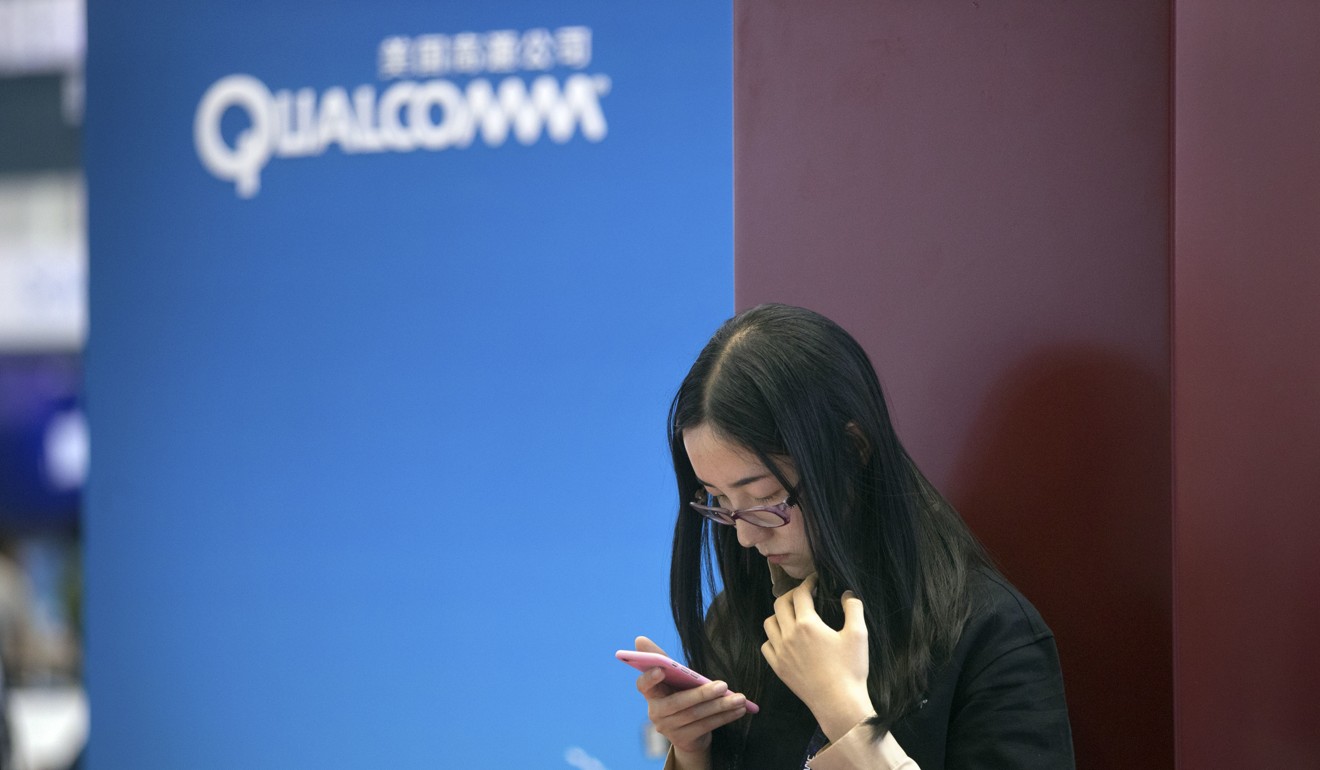
Apple's China headache worsens as court bans iPhone sales in Qualcomm patent dispute
- Greater China is currently Apple’s third largest market, accounting for about a fifth of revenues
- Most recent models, which include the iPhone XR and iPhone XS, are not included in the ruling
A Chinese court order instructing Apple to stop sales of its iPhones in China ups the ante on the US technology giant in one of its biggest markets, amid revenue pressures and declining smartphone growth globally.
On Monday, a statement from Qualcomm said the Fuzhou Intermediate People’s Court had granted the US chip maker’s request for two preliminary injunctions against four subsidiaries of Apple, ordering them to immediately stop selling models from the iPhone 6S to iPhone X.
If upheld, the court ruling could adversely impact Apple’s revenues as Greater China – which includes mainland China, Hong Kong, and Taiwan – is currently the US company’s third largest market, accounting for about a fifth of Apple’s revenues. In its latest financial year, Apple racked up over US$260 billion in global sales.
Apple’s most recent phone models, which include the iPhone XR and iPhone XS, are not included in the ruling, as these devices were not released when the suit was filed in 2017.
Apple said in a statement on Monday that “all its iPhone models remain available” for customers in China, and has filed a request for reconsideration with the court as a first step to appealing the preliminary injunction.
It called Qualcomm’s effort a “desperate move by a company whose illegal practices are under investigation by regulators around the world”, adding that Qualcomm “is asserting three patents they had never raised before, including one which has already been invalidated”.
The timing of the court order comes amid the ongoing US-China trade war and rising nationalist sentiment among China’s consumers, with more turning to Chinese smartphone brands such as Huawei.
“The older iPhone models [included in the court order] still make up a big volume of iPhone sales in the China market and if a prolonged ban [is enforced], the supply chain in China will also be affected,” said Kiranjeet Kaur, a senior research manager with IDC’s Asia-Pacific client devices group.
Greater China firms such as Foxconn, Hong Kong-listed AAC Technologies, BYD and BOE Technology are just some of Apple’s Chinese suppliers, providing a range of services including assembling and supplying components and technology for its products.
Canalys analyst Nguyen Tuan Anh said the ban is unlikely to be enforced in coming months as it is a preliminary injunction and legal proceedings are likely to stretch out over several months. “The iPhone models affected are already over a year old and since China is an advanced market, consumers generally prefer the new smartphone models like the iPhone XS and XR,” he said, adding that Apple will see only a limited effect on its revenues in China.
However, if the ban comes into effect in the upcoming quarters in 2019, “suppliers working on the older components will be affected”, Nguyen added.
In recent years, Apple’s market share in China has declined from 15 per cent in the fourth quarter of 2017 to 9 per cent in the third quarter of 2018, according to Counterpoint Research. The decline also comes as smartphone growth matures on the Chinese mainland.
Chinese smartphone makers Vivo, Oppo, Huawei Technologies, Huawei’s sub-brand Honor and Xiaomi ranked top five in China, the world’s largest smartphone market, in the quarter ended September. Apple came in sixth, according to Counterpoint. The court order to halt iPhone sales could further set Apple back in the mainland China market, traditionally seen as an important market for the company.
If the court order is enforced, Apple will lose out in the category of smartphones priced below 7,000 yuan (US$1,013), giving brands like Huawei a big advantage to fill the gap, according to IDC China managing director Kitty Fok.

The patent infringement suit involves Apple’s alleged violation of Qualcomm’s software patents related to resizing photographs and app management on a touch screen, and concerns devices sold with Apple’s iOS 11, an older version of its operating system. Apple could work around the infringement accusations by upgrading all of its devices to a new operating system, according to a research note by China Merchants Securities in Shanghai.
Qualcomm said in its statement that it has an “abiding belief in the need to protect property rights”.
“Apple continues to benefit from our intellectual property while refusing to compensate us,” said Dan Rosenberg, executive vice president and general counsel for Qualcomm.
However, some experts believe that this is just part of an ongoing legal dispute between the two technology giants and is unlikely to have a long-term impact on Apple.
“Qualcomm owns a suite of patents worldwide which it has accused Apple and others, including Huawei, of infringing,” said Paul Haswell, partner at law firm Pinsent Masons. “It’s not uncommon for a court to ban a sale of infringing products until the dispute is resolved, and then for this to be reversed until final judgment is delivered.”
While the court order to stop iPhone sales is enforceable, it “requires someone to enforce it”, Haswell said.
“Apple won’t stop selling devices until forced to do so,” he said.
Although the court order was issued in Fuzhou, it is effective nationwide. “However, many resellers and e-commerce platforms selling the affected iPhones have not received a formal notice to halt sales, so it is business as usual for them,” said IDC’s Fok.
Zheng Wei, partner lawyer at Beijing-based law firm Anli Partners, said although the court injunctions are not publicly available, they were likely “pre-pleading restraining orders” which could mean the final verdict is months or years away.
“However, the injunctions don't mean the court is in favour of Qualcomm, and they won't affect other means both sides can pursue throughout the process, including settlement and litigation,” he said.
Additional reporting by Li Tao


